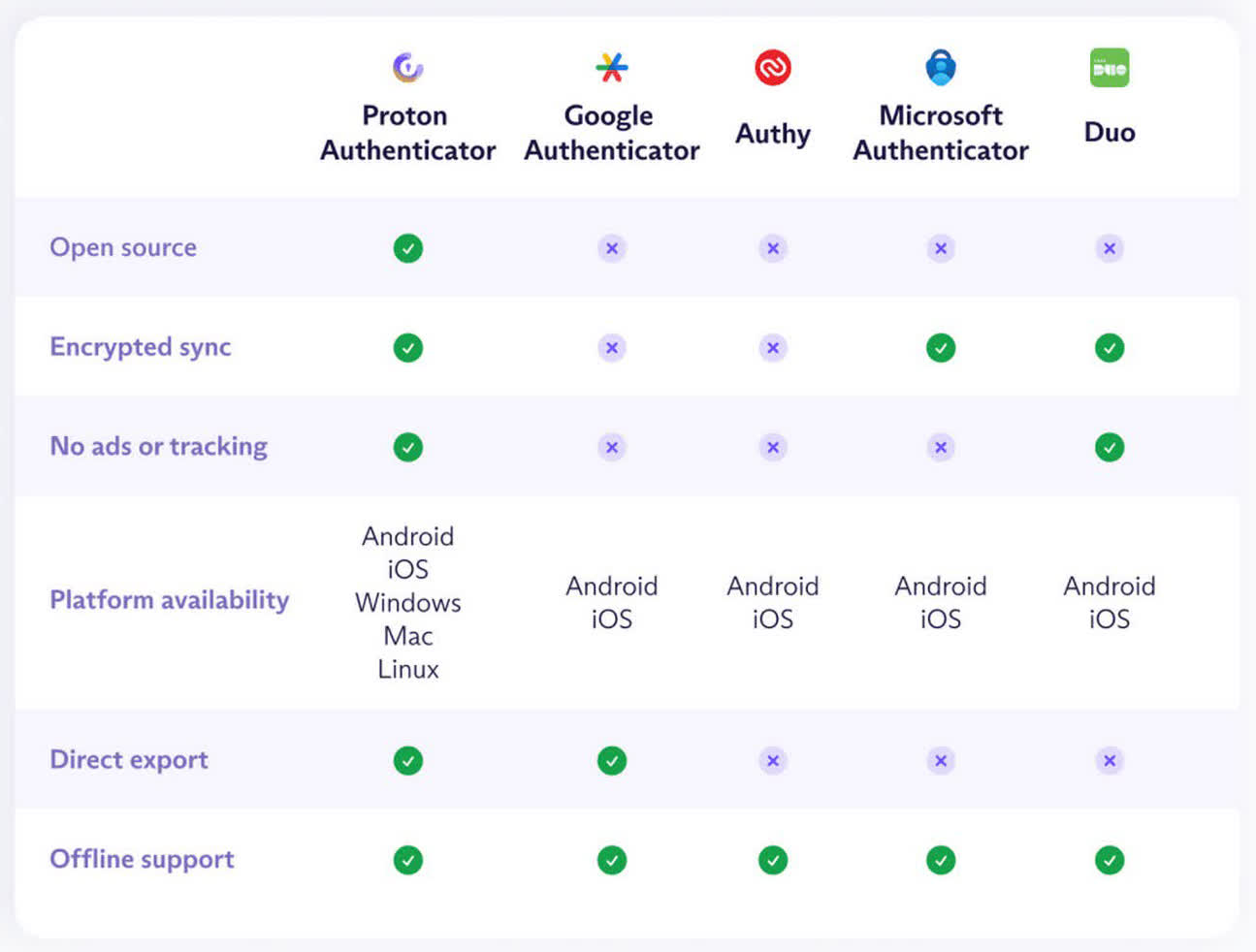Serving tech enthusiasts for over 25 years.
TechSpot means tech analysis and advice you can trust.
What just happened? Swiss technology company Proton has expanded its privacy-focused software lineup with the launch of Proton Authenticator, a free and open-source two-factor authentication app. Best known for its encrypted webmail service, Proton also offers a VPN, password manager, cloud storage, and an online document editor.
Proton Authenticator is positioned as a privacy-focused alternative to authentication apps from Google, Microsoft, Authy, and Duo. It replaces legacy SMS-based verification by generating unique login codes for two-factor authentication when signing into websites and online services.
The app features end-to-end encryption and is protected by strong Swiss privacy laws that align with the European Union's General Data Protection Regulation. According to Proton, the app does not collect or share any user data with third parties or law enforcement.
Proton claims its new authentication tool offers greater flexibility and stronger encryption than competing services. It allows users to import existing 2FA tokens from other authentication apps, making the transition process easier. The app also supports biometric authentication and PIN codes for added security.
According to Proton, the app outperforms existing solutions by offering unique features and full cross-platform compatibility. Standout features include encrypted sync, direct export, automatic backups, and offline support. It also delivers an ad-free experience and avoids trackers, unlike Google Authenticator, Microsoft Authenticator, and Authy.
Like all Proton apps, Authenticator is open-source and has been independently audited and verified by third-party experts. It is available for free on Android, iOS, macOS, Windows, and Linux. Users can download the desktop version from the official Proton website and the mobile version from the App Store or Google Play.
Two-factor authentication is widely recognized as one of the simplest and most effective ways to protect online accounts from cyber threats. It requires users to enter a six-digit code in addition to their password when signing in. These codes are randomly generated by the authenticator app, ensuring that unauthorized users cannot access an account even if the password is compromised.







 English (US) ·
English (US) ·